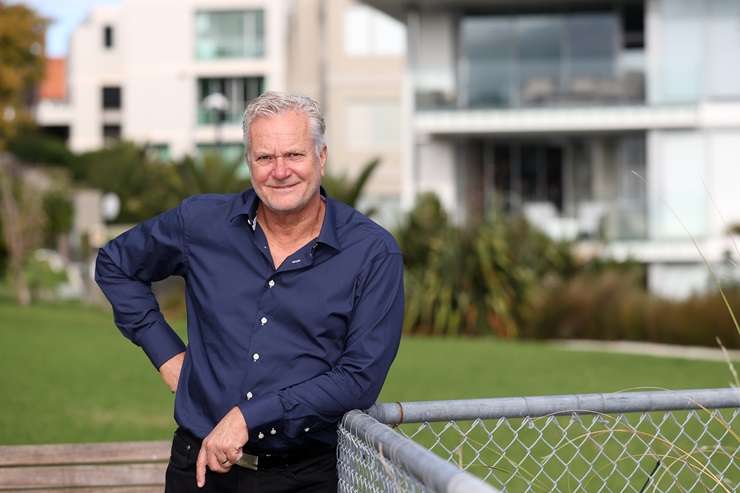Buyers who are reluctant to reveal the sometimes eye-watering sums they’ve splashed out on a house could find themselves swallowing a big dose of reality as not only is it required, but it’s the law.
In the last few months some high-profile homes around the country have fetched some equally high prices and the unconditional sales prices have been withheld.
New Zealand Sotheby’s International Realty managing director Mark Harris said it was quite common for both sellers and purchasers to request details of the sale of their usually high-end properties to remain as confidential as possible.
“We end up signing NDAs [non-disclosure agreements] quite often which means we can’t talk about transactions.”
Start your property search
Discover more:
- Auction win for homeowners who risked everything after rejecting $725K offer
- Middle-class nightmare: 'Unhealthy' debt, private school fees killing house upgrade dreams
- Beach mansion that’s never been lived in sells for secret sum
Harris said the agency was required by Real Estate Institute of New Zealand (REINZ) to report an unconditional sale unless the vendor, purchaser or both parties entered into a non-disclosure statement which meant the transaction was kept confidential and not included in the REINZ database.
Ray White agent Ross Hawkins, who specialises in high-end real estate, said a lot of people didn’t want others to know how much they paid for a property, but it was extremely difficult to enforce an NDA and hide a sale price once the property had settled and been processed through council.
“It has been known to happen and how that has taken place is obviously some type of loophole the lawyers involved been able to come up with.”
But despite gagging attempts at the agency level, councils approached by OneRoof said sales prices would not stay a secret for long because once a property settled it was required by law that the information including the sale price be lodged by the solicitor with the local council and made public.

Ray White agent Ross Hawkins says a lot of people want to hide the sales price, but it's extremely difficult to do it. Photo / Fiona Goodall
Toitū Te Land Whenua Land Information New Zealand (LINZ) valuer-general Neill Sullivan said it was a legal requirement for property sales to be reported to local authorities either via an online voluntary sales reporting platform known as Notice of Change (NOC) or manually with the council within one month of settlement.
“All sales should be reported, and it is up to individual local authorities to monitor compliance in their district and follow up on missing or inaccurate information, such as sale price entries of $0.”
Three of the country’s four biggest city councils told OneRoof they took their compliance roles seriously. There were good reasons for collecting the information and making it publicly available, they said, including using property sales data to inform rating valuations which local authorities use to set rates.
Wellington City Council and Auckland Council both had cases where purchasers had asked for the market price to be withheld, but these requests were always declined.

Remuera, in central Auckland. The suburb is home to some of the most expensive houses in New Zealand. Photo / Chris Tarpey
“The public cannot be expected to tell if their rating value is correct if they are not allowed to see sale prices for similar properties, so the sale prices have to be public information,” a Wellington City Council spokesperson said.
Hamilton City Council financial director Tracey Musty said on the very rare occasion the council had been advised on a Notice of Sale that the sale price was confidential or withheld they would speak with the solicitor and advise of the requirement to provide the information, which inevitably happened.
Auckland Council head of rates, valuations and data management Rhonwen Heath said requests for the missing information usually resolved these isolated cases and, therefore, Auckland Council did not need to actively monitor or have penalties in place.
There was significant public interest in sales information, she said, and territorial authorities were expected to make details of property sales available for transparency purposes.

REINZ CEO Jen Baird says suppressions of unconditional sales are rare. Photo / Fiona Goodall
“In Auckland, high public interest exists in comprehensive and accurate analysis of the property market and missing data can create an inaccurate overall picture. The public also utilise the information to make informed decisions regarding their properties.”
Property lawyer Joanna Pidgeon, of Pidgeon Judd Law, said failing or delaying notifying the change of ownership meant the previous owner would be liable for paying rates on a property they no longer owned.
There were exceptions where people could apply for data to be withheld from the register such as someone who was a victim of domestic violence or a crown prosecutor, she said, but this would extend only to the name of the person and not the sale price.
While there was an implication to the rates if the ownership was not updated and the wrong person could be billed for them, Pidgeon said failure to lodge the correct information could fall under a breach of the lawyer’s professional standards if they were found to have provided false information.
Dentons senior associate Oliver Hobbs, who specialises in property and construction law, said the sale price could not be hidden and territorial authorities were obligated to collect the sales data and make it public.
He said if people were trying to be tricky than transactions could be structured in a certain way such as declaring a sale price and then agreeing on a side deed to hide the true value paid, but that entered dangerous territory and people could be get tripped up elsewhere like deceptive conduct under the Fair Trading Act or even under the Local Government (Rating) Act.

QV operations manager James Wilson: "These sales are not only used within valuation analysis and reports, they are used to power a large range of property decisions." Photo / Fiona Goodall
“You’ve got an obligation to disclose the price don’t you, you shouldn’t really be hiding the price in a way.”
QV operations manager James Wilson said the suppression of important information to do with a sale should only be permitted due to very limited circumstances and not just because a party doesn’t want to share this information for personal reasons.
“It is absolutely vital that valuers are able to get an accurate and timely record of the most recent sales to use as evidence within their valuations,” he said.
“These sales are not only used within valuation analysis and reports, they are used to power a large range of property decisions, from automated valuation models through to property platforms, when these sales are not provided in a timely, accurate or complete way there can be direct flow on impacts to end users.”
REINZ also required members to provide sales data for their own use. The unconditional sales data was collected separately from the settled sales data required by the council and unlike the council data could be kept confidential in certain cases.
REINZ chief executive Jen Baird said the sales were only exempt from being recorded – which is where examples of the $0 sales figures popped up – if it had been legally prohibited. It was up to the vendor and lawyer to determine the reasons they could use confidentiality clauses, which was included in the Further Terms of Sale in the Sale and Purchase of Agreement, to prevent the agent from releasing the sales information to REINZ, she said.
Baird said it was rare for this to happen and members provided the data so they could provide the best market analysis they could for their clients.
* Christchurch City Council did not response to OneRoof’s request prior to deadline.
- Click here to find properties for sale
















































































